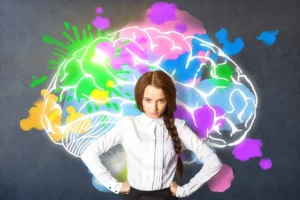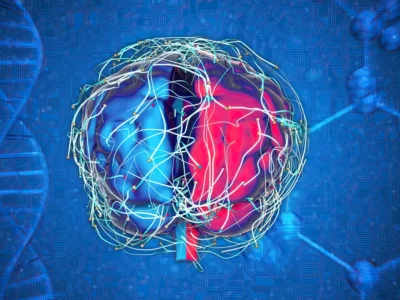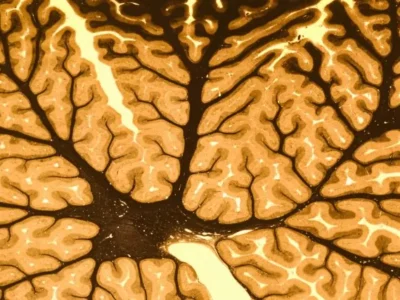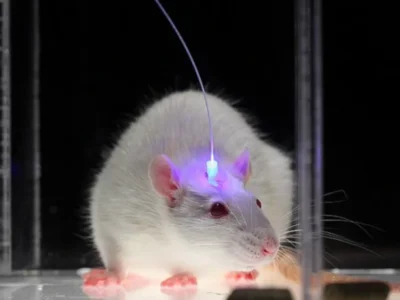The Murcian Association of Neuroscience (AMUNE) explains how neuroeducation is the new challenge for educators, since strategies focused on the functioning of the brain are beginning to gain importance.
For decades teachers have taught and educated without knowing the neural connections that children have at each stage of development. During their academic and professional training they devote part of their time to planning, programming and trying to motivate students so that they develop their qualities, abilities and talents to the fullest.
However, until recent years and pedagogical renewal movements, no one had stopped to think about the child, about their brain and the importance it has for teaching work and for their learning.
At this moment of reflection and change, “Neuroeducation” begins to gain importance, that new and unfamiliar field for teachers, which will provide them with the necessary information about the child’s brain and its functioning.
What is neuroeducation?
The neuroeducation or neurodidactics is a new vision of teaching that is based on providing strategies and educational technologies focused on the functioning of the brain.
This new discipline merges knowledge about neuroscience, psychology and education with the aim of optimizing the teaching and learning process. Therefore, it is crucial to know and discover what it is for and what it contributes to the educational system. (Mora, 2017).
Salvador Martínez (2017), Professor of Human Anatomy and Embryology at the Miguel Hernández University (UMH) of Elche and director of the Institute of Neuroscience of Alicante, considers educating as acting on the brain.
The brain is the recipient of education, since everything we think, feel and perceive is in the brain. In each child we find a brain, with peculiarities and functions that will condition the individual’s learning process, since the brain completely determines behavior.
Therefore, education begins to make sense when they observe a child and not only see a heart and a soul, but a brain maturing and changing. In this process, teachers are responsible for teaching and motivating the child so that they develop
All the capacities they possess, transform their conduct and behavior, and achieve new learning, since these are the ones responsible for creating new neural circuits, that is, the synapse is the basis of learning.
Therefore, neurons are responsible for establishing new connections, multiple during childhood, when the child carries out meaningful learning, that is, when they acquire and transform their neural circuits and adapt to new learning environments, a product of their brain plasticity.
Scientific discoveries and the change in education: “Learning by doing”
Scientific discoveries in the field of neuroscience have made it possible to transform and modify the way we educate. Following Gamo (2016) and Guillén (2017), experts in neuroeducation, it is essential to teach according to neuronal processes.
Therefore, neuroeducation provides a methodological approach based on the executive functions of the brain, focused on the activation of learning, the construction and consolidation of contents and the assessment of this process, in a context of emotions and social relationships.
Taking into account their capacities and competencies, the child must learn by doing because in this way the construction of neural connections and their restructuring is ensured, to achieve full learning.
Children need to be motivated, develop their attention and cultivate their memory, taking these ingredients into account, their learning is assured.
However, in the majority of educational centers they still follow a methodological approach centered solely on memorizing information, which is neither relevant nor motivating, without taking into account memory circuits nor the reasoning that the child must follow to internalize such knowledge, which leads to the absolute failure of their learning.
Family and neuroeducation
From the family sphere, Bilbao (2015), Doctor in Health Psychology and neuropsychologist, advocates the need to guide parents so they can discover their children’s neural functions and be able to intervene and educate on a sound basis, that is, attempt to modify traditional parenting, based on absolute affection; to educate and promote intellectual qualities, in tune with emotions.
Thus, families are the main context in which the child develops, conditioning their neural connections and their development, therefore, they can help and collaborate in their cerebral and emotional maturity, through proper nutrition and adequate rest; the promotion of physical, sporting and creative activities; offering a positive and trusting environment in which they can apply their knowledge to reality (Mora, 2017).
Bibliography
- Bilbao, A. (2015). El cerebro del niño explicado a los padres. Barcelona: Plataforma Editorial
- Gamo, J.R. (2016). Neuromitos en educación: el aprendizaje desde la neurociencia. Barcelona: Plataforma Editorial
- Guillén, J. (2017). Neuroeducación: de la teoría a la práctica. Madrid: Alianza.
- Marina, J.A. (2011). El cerebro infantil: la gran oportunidad. Barcelona: Ariel.
- Mora, F. (2017). Cómo funciona el cerebro. Madrid: Alianza.
- Mora, F. (2017). Neuroeducación: solo se puede aprender aquello que se ama. Madrid: Alianza.
If you liked this article on neuroeducation, you might also be interested in the following articles:
“This article has been translated. Link to the original article in Spanish:”
Neuroeducación: neurociencia aplicada al aprendizaje escolar







 Differences between ADHD and ASD: Understanding two neurodevelopmental disorders
Differences between ADHD and ASD: Understanding two neurodevelopmental disorders
Leave a Reply